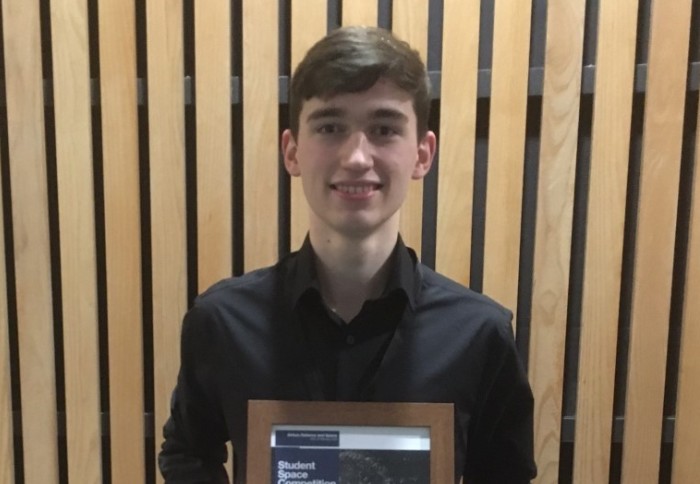Aeronautics undergraduate student wins Airbus Space competition
by Ayesha Khan

Liam Donnelly, was announced the winner of the Airbus Student Space competition for his novel idea on space debris removal.
Liam recently won the national Airbus Disruptive Technology: Space Debris Removal competition with his unique technology to address the pressing issue of the build-up of man-made material in Earth’s orbit, ensuring future space sustainability.
Liam, a first year Aeronautics student, conveyed his idea, Small Space Trash Automated Removal System (SSTARS), that uses a collection of satellites and springs for space debris removal, to a panel of industry experts. As opposed to existing technologies, that are targeted towards removing large items of debris, SSTARS removes debris between 3 to 30cm in size, weighing less than 10kg.

In aiming to remove smaller pieces of debris, Liam’s technology is able to utilise the lower power of spring action as a solution. Although a peculiar choice, the springs provide a sufficient change in velocity for the removal of several pieces of small debris at once.
Once debris is captured by the satellite, the springs push debris towards Earth’s atmosphere for removal and disposal. Pushing on the debris exerts an opposite and equal impulse on the satellite. This impulse propels the satellite towards its next target debris; thus a reusable spring launch system.
When designing SSTARS my main aims were to maximise reusability in the design and capitalise on an under-explored market for the removal of small space debris. Liam Donnelly Undergraduate Aeronautics Student
In being announced the winner, Liam was awarded with a tour of the Airbus Space and Defence site, as well as an invitation to present his technology at the Student for the Exploration and Development of Space (UKSEDS) National Student Space Conference.
The Airbus Student Space Competitions (Space Debris Removal and Ocean World Exploration) was open to all UK undergraduate and Master’s students. Students were invited to propose technologies to address current issues using creative thinking and research.
Article text (excluding photos or graphics) © Imperial College London.
Photos and graphics subject to third party copyright used with permission or © Imperial College London.
Reporter
Ayesha Khan
Department of Aeronautics